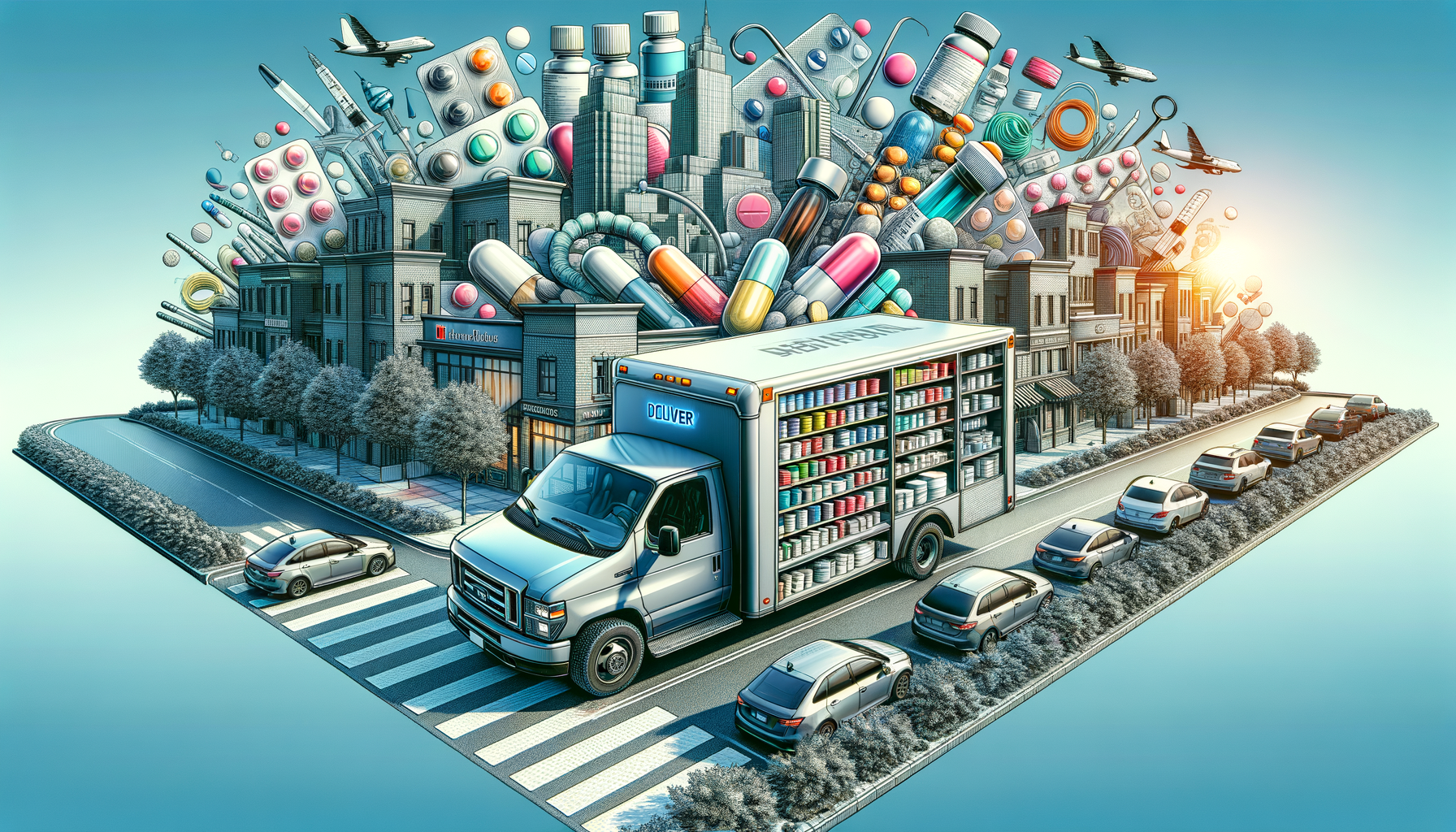
How to Become a Medicine Delivery Driver
The Role of a Medicine Delivery Driver
Medicine delivery drivers play a crucial role in the healthcare system, ensuring that patients receive their medications promptly and safely. This job involves more than just transporting packages; it requires a deep understanding of the importance of timely delivery and the sensitivity of the products being handled. Drivers must be aware of the specific requirements for transporting different types of medications, such as those that require refrigeration or special handling. The role also demands excellent organizational skills to manage delivery schedules and routes efficiently.
Drivers often work with pharmacies, hospitals, or specialized courier services dedicated to healthcare logistics. They must maintain accurate delivery records and communicate effectively with both the dispatch team and the recipients. In addition to technical skills, medicine delivery drivers need to possess a strong sense of responsibility and reliability, as they are entrusted with handling substances that are vital to patient health.
Qualifications and Skills Required
Becoming a medicine delivery driver does not typically require extensive formal education, but certain qualifications and skills are essential. A high school diploma or equivalent is usually the minimum educational requirement. More importantly, candidates must possess a valid driver’s license and a clean driving record. Some employers may require additional certifications, such as a commercial driver’s license, especially if the job involves operating larger vehicles.
Key skills for a successful medicine delivery driver include:
- Strong communication abilities to interact with pharmacies and patients.
- Attention to detail for managing delivery logs and ensuring accurate deliveries.
- Time management skills to adhere to strict delivery schedules.
- Basic knowledge of the local area to navigate efficiently.
Employers might also look for candidates with experience in logistics or customer service, as these roles help develop relevant skills for the position.
Challenges and Responsibilities
The role of a medicine delivery driver comes with a unique set of challenges. One of the primary responsibilities is ensuring the safe and secure transport of medications. This includes adhering to protocols for handling controlled substances and maintaining the integrity of temperature-sensitive products. Drivers must be vigilant about following safety regulations and company policies to prevent any mishaps or legal issues.
Another challenge is managing time effectively. Deliveries often have strict deadlines, and drivers must plan their routes carefully to avoid delays. Traffic, weather conditions, and other unforeseen circumstances can impact delivery times, so adaptability and problem-solving skills are crucial. Additionally, drivers must be prepared to handle emergencies, such as vehicle breakdowns, while ensuring that the medications reach their destination on time.
Technology in Medicine Delivery
Technology plays an increasingly important role in the efficiency and accuracy of medicine delivery. Many companies now utilize sophisticated logistics software to optimize routes and track deliveries in real-time. This technology helps drivers make informed decisions on the road, improving delivery times and reducing errors. GPS systems and mobile apps are commonly used tools that assist drivers in navigating unfamiliar areas and updating delivery statuses promptly.
Moreover, electronic proof of delivery systems has become standard practice, allowing drivers to capture recipient signatures digitally. This not only streamlines the process but also provides a reliable record for both the driver and the company. With advancements in technology, medicine delivery drivers can perform their duties more efficiently, ensuring that patients receive their medications without unnecessary delays.
The Future of Medicine Delivery
The future of medicine delivery is poised for significant changes as technology continues to evolve. Innovations such as drone delivery and autonomous vehicles are being explored to further enhance the speed and reliability of medicine distribution. These technologies could revolutionize the industry by reducing delivery times and expanding access to remote areas.
Additionally, the rise of telemedicine and online pharmacies is increasing the demand for medicine delivery services. As more patients opt for home delivery of their prescriptions, the need for skilled delivery drivers will continue to grow. This trend highlights the importance of investing in training and technology to support the evolving demands of the healthcare sector.
Overall, the role of a medicine delivery driver is becoming more critical than ever, with opportunities for growth and development in the field. As the industry adapts to new technologies and consumer preferences, drivers can look forward to a dynamic and rewarding career.


